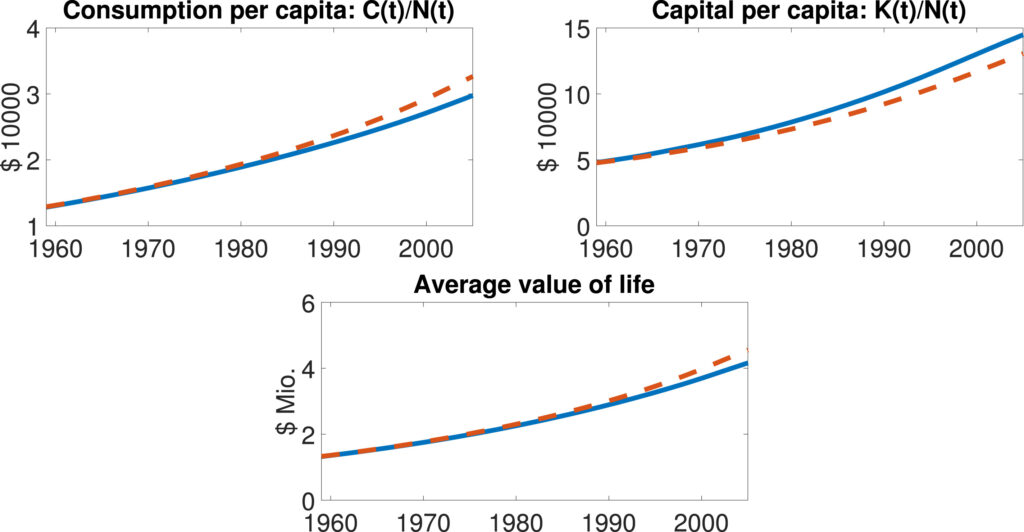Based mostly on a research by Frankovic and Kuhn (2022), the reply is each. Nevertheless, the worth of elevated innovation–as measured by means of longevity positive aspects–greater than offset inefficiencies from overspending. Particularly, the authors use an overlapping generations mannequin the place people can buy medical health insurance and medical progress relies on well being care sector return on funding. The authors calibrate their mannequin utilizing longevity information from the Human Mortality Database from 19650 by means of 2005, earnings information from the Present Inhabitants Survey (CPS) and well being care spending information from the Nationwide Heart for Well being Statistics (NCHS). This time-frame is related as 1965 was the yr Medicare was applied within the US.
Utilizing this technique, the authors discover that:
…extra in depth medical health insurance accounts for a big share of the rise in US well being spending but additionally boosts the speed of medical progress. A welfare evaluation reveals that whereas the subsidization of well being care by means of medical health insurance creates extreme well being care spending, the positive aspects in life expectancy led to by induced medical progress greater than compensate for this.
Total, elevated ranges of medical health insurance lower consumption as extra money is spent on well being care. On the similar time, capital–significantly capital invested in R&D–will increase as medical health insurance will increase returns on funding as extra sick sufferers are capable of afford remedy. The authors be aware that:
One rationalization for why the advantages from medical progress more and more outweigh the loss from ethical hazard lies with the continuing development of revenue: So long as per capita consumption is growing over time, people are inclined to assign an growing worth to life (Corridor and Jones, 2007, Chen et al., 2021). This argument extends to the evaluation of ethical hazard, the place people are prepared to tolerate an growing distortion from well being insurance coverage in trade for a rise in lifetime, so long as this solely slows down however doesn’t reverse consumption development.
The authors additionally be aware that medical costs improve over time as a result of Baumol price illness; particularly the joint impression of productiveness development within the remaining items sectors and medical progress itself result in larger costs.

You possibly can learn the total paper right here.
